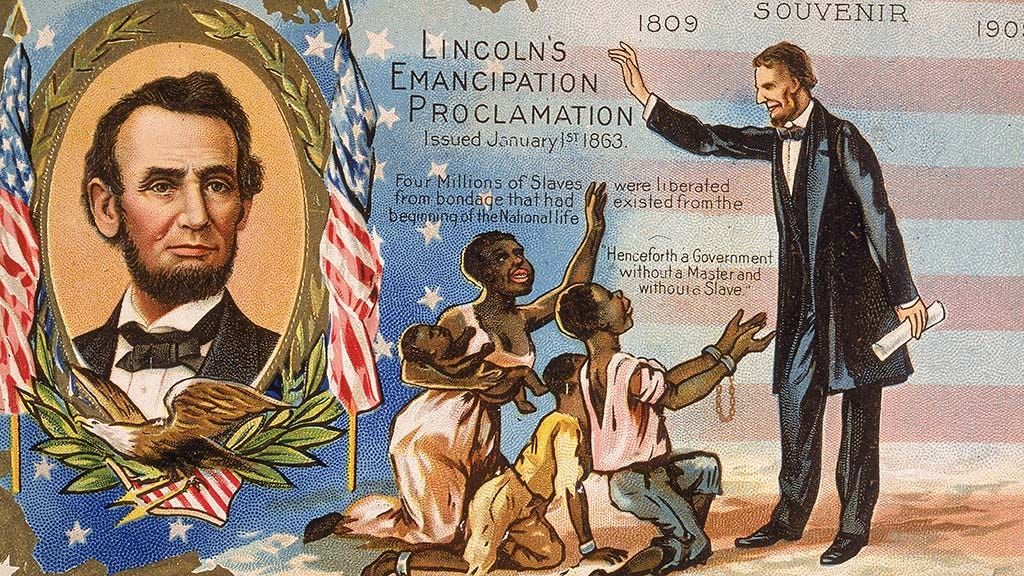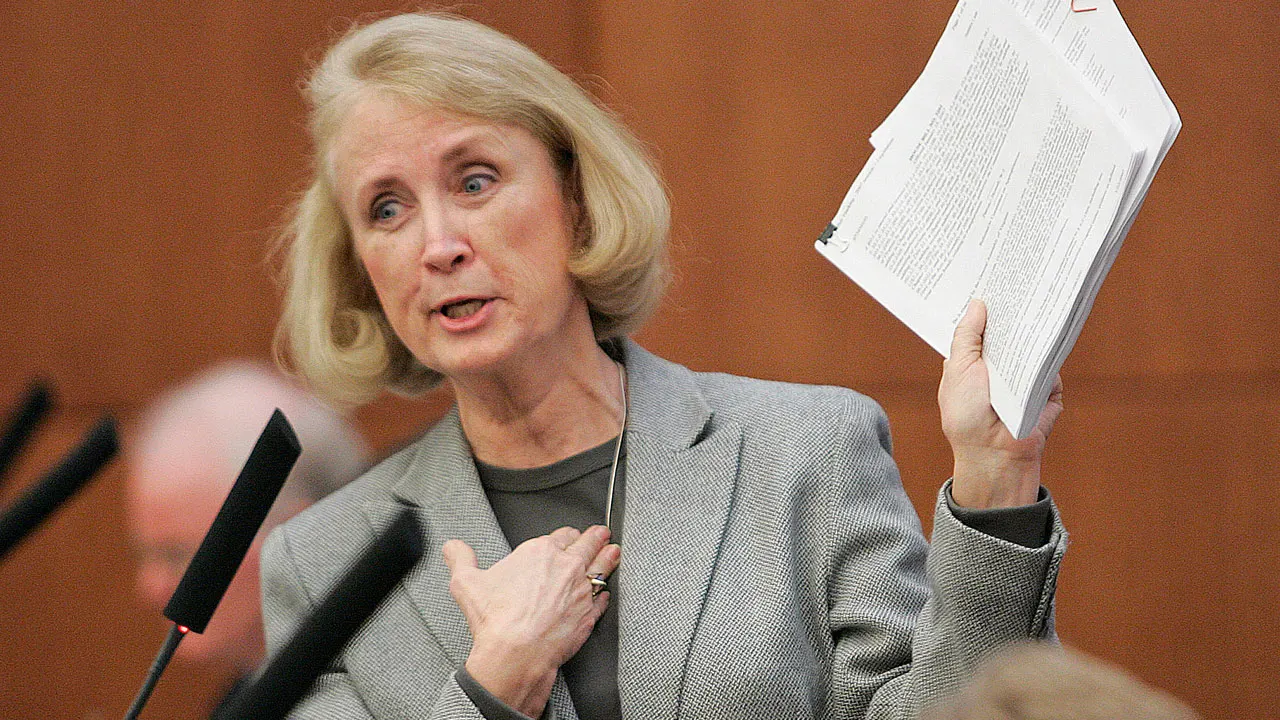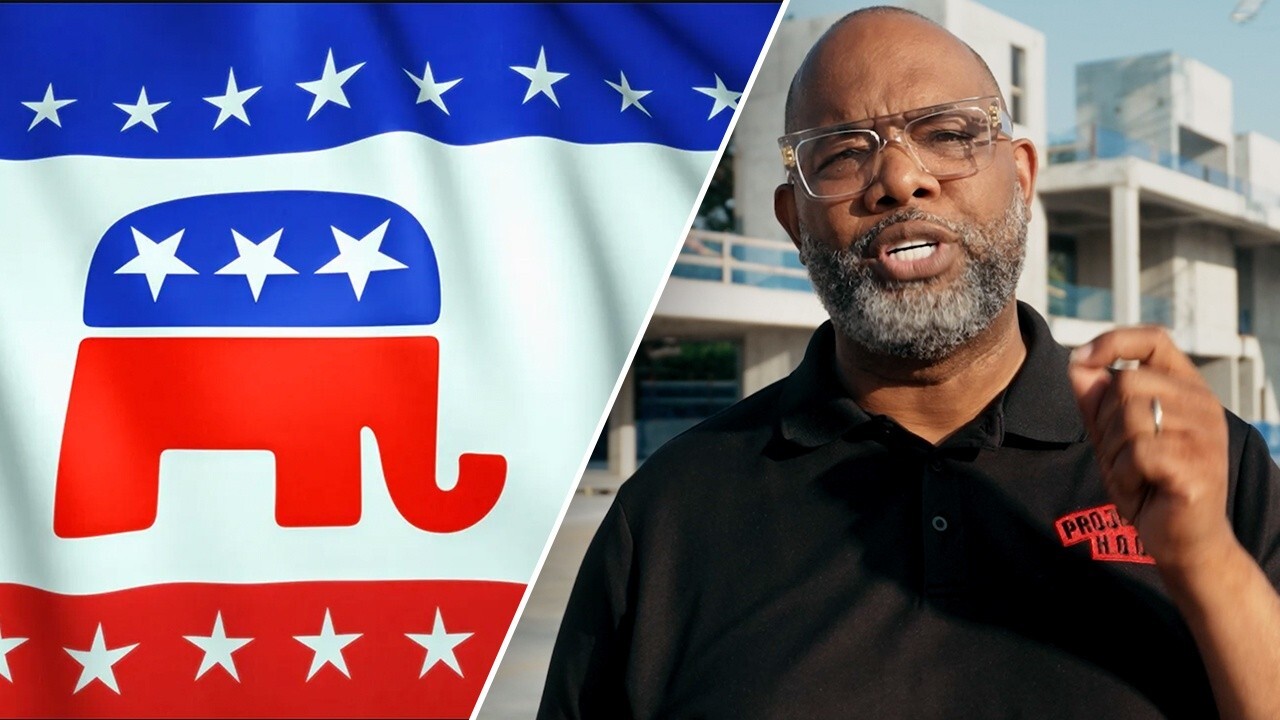Abraham Lincoln is responsible for one of the boldest and most far-reaching uses of executive powers in American history with his announcement that slaves would soon be “forever free” on this day in history, September 22, 1862.
Known to historians as the “preliminary” Emancipation Proclamation, Lincoln's announcement stated that slavery would end in the United States on January 1, 1863, the date his proclamation would take effect.
He made the announcement to the nation as the Civil War stretched into its second year and had become far deadlier than most had anticipated.
ON THIS DAY IN HISTORY, SEPTEMBER 21, 1780, BENEDICT ARNOLD BETRAYS THE CAUSE OF AMERICAN INDEPENDENCE
“All Persons held as Slaves within any State, or designated Part of a State, the inhabitants of which shall be in rebellion against the United States, shall then be thenceforth and forever free,” Lincoln announced.
The “Great Emancipator” claimed controversial war powers in making the proclamation.
Postcard honoring President Abraham Lincoln (1809-1865) for his Emancipation Proclamation that freed the slaves, 1863. (Kean Collection/Getty Images)
Lincoln was given the political capital to make the stirring announcement after the Union victory at the Battle of Antietam in Maryland just five days earlier.
The bloodshed was shocking, the National Park Service reports, noting that “23,000 men had been killed, wounded or listed as missing, the bloodiest day in American history.” [Confederate General Robert E.] Lee's first invasion of the North ended when he retreated into Virginia on the night of September 18.
ROBERT E. LEE MEMORIAL RENOVATION TEAM FINDS WHAT IS BELIEVED TO BE A TIME CAPSULE FROM 1887
Lincoln's boost on the battlefield came after the Federal army had been outmaneuvered, outmaneuvered, and outgunned in nearly every battle of the first year of the Civil War.
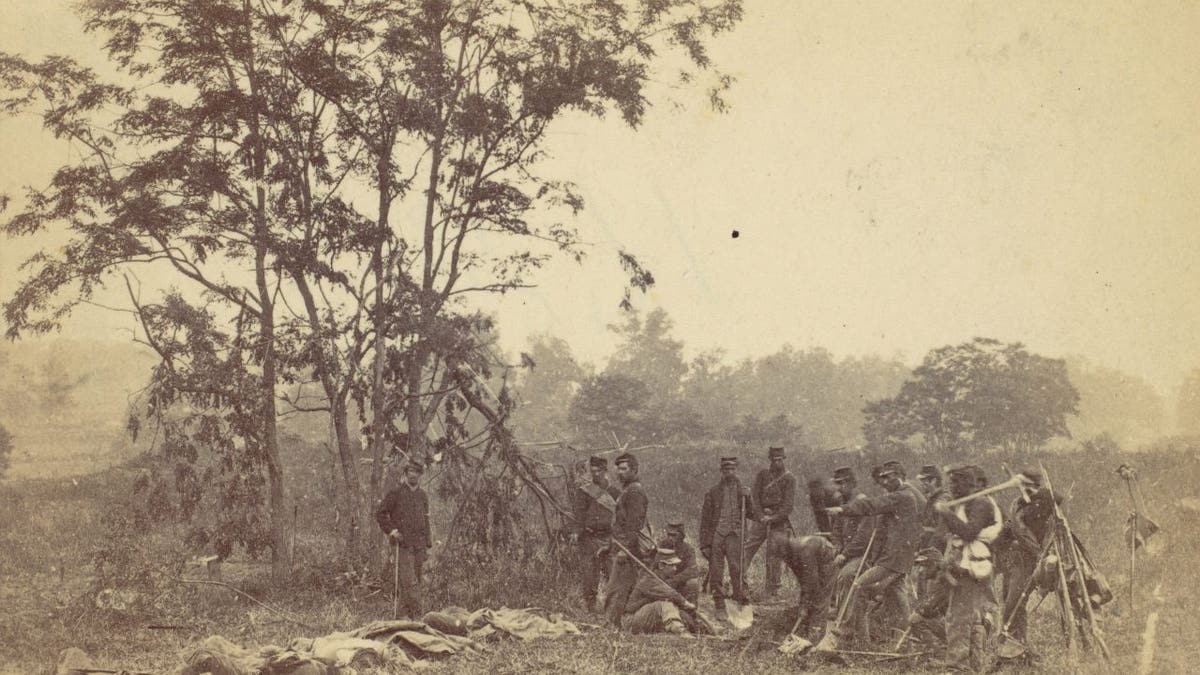
Burial of the dead on the battlefield of Antietam, September 1862; artist: Alexander Gardner. The Union victory came at great cost, but it gave Abraham Lincoln the political capital to announce the imminent end of slavery. (Heritage Art/Heritage Images via Getty Images)
“Antietam… demonstrated that the Union could take on the Confederate army in the Eastern theater of operations,” writes the American Battlefield Trust.
“It also gave President Abraham Lincoln the confidence to issue the preliminary Emancipation Proclamation in a moment of strength rather than desperation.”
CLICK HERE TO SUBSCRIBE TO OUR LIFESTYLE NEWSLETTER
Lincoln had attempted to convince Congress to take action to emancipate the nation's people from slavery.
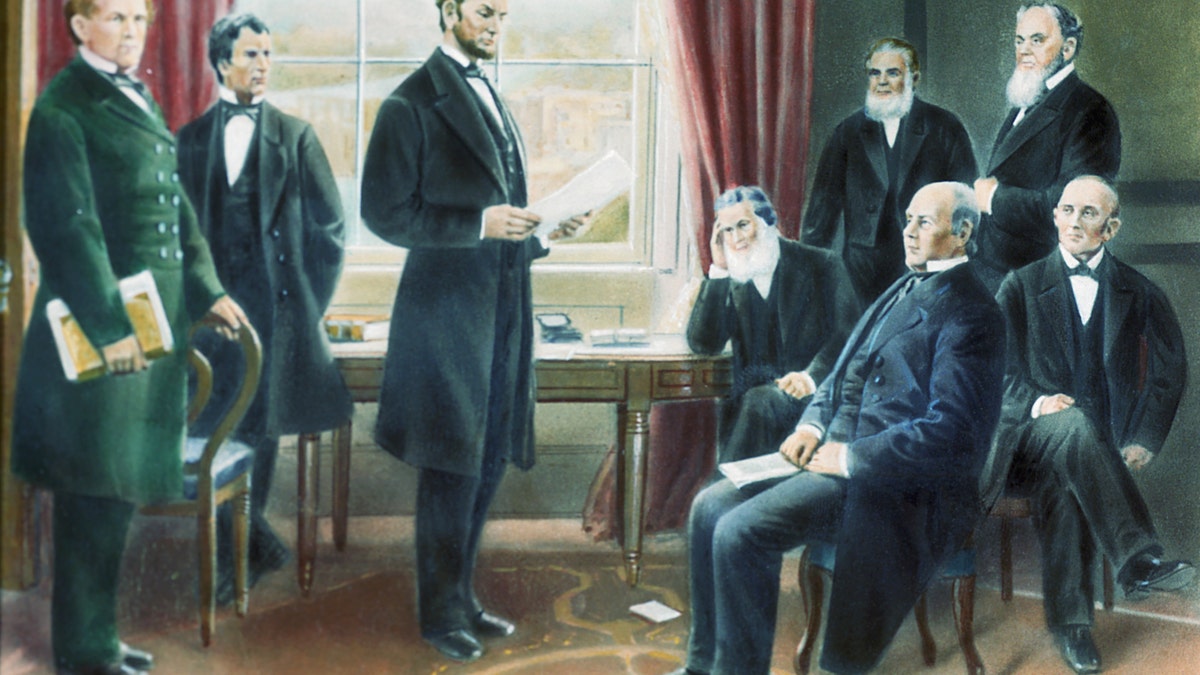
Illustration (undated) showing Abraham Lincoln reading the draft of the Emancipation Proclamation to his cabinet in 1862. (Getty Images)
“Finally, in the summer of 1862, he shifted the basis of an emancipation strategy to his presumed constitutional 'war powers' as commander in chief, submitting a draft emancipation proclamation to his cabinet in July,” the National Constitution Center writes.
ON THIS DAY IN HISTORY, SEPTEMBER 19, 1796, PRESIDENT GEORGE WASHINGTON DELIVERED A FAREWELL ADDRESS
“Although there was no consensus on the existence of such 'war powers,' Lincoln issued a preliminary Emancipation Proclamation on September 22, 1862, and then issued a final Emancipation Proclamation on January 1, 1863.”
For more lifestyle articles, visit www.foxnews.com/lifestyle
Lincoln ordered in his announcement: “I do hereby order and command all persons serving in the military and naval services of the United States to observe, obey, and enforce, within their respective spheres of service, the law and sections aforesaid.” [the pending emancipation of the slaves].”
CLICK HERE TO GET THE FOX NEWS APP
“Emancipation would redefine the Civil War, transforming it from a fight to preserve the Union to one focused on ending slavery and would set a decisive course for how the nation would be reshaped in the aftermath of that historic conflict,” writes History.com.

